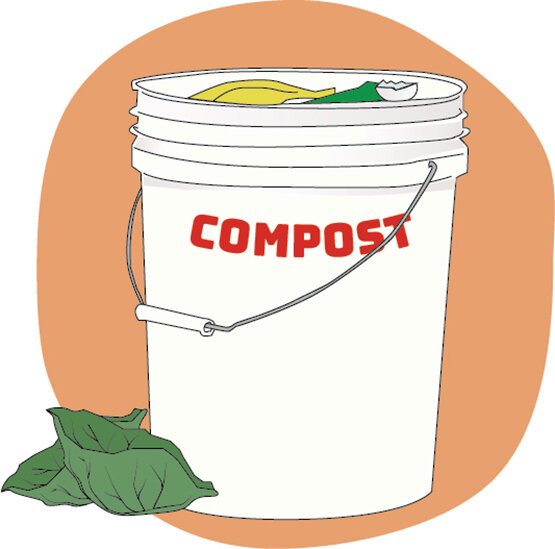Commercial Fishing Policies Need to be Improved for Sake of Marine Environment
August 19, 2021
Is this any way to manage our marine resources? Most any summer day along the Rhode Island coast you will see scenes like the one depicted in the photograph above.
Commercial fishermen are employing techniques that have been used for decades. They lower large nets from the stern of their vessels. Some of these nets are well over 100 feet wide. They are held open with “doors” that pull the cables behind the boat apart so that they “fly” through the water with a wide-open mouth. They are lowered to tend bottom as the trawler moves slowly forward for anywhere from less than a mile to up to 10 miles, or until there is so much strain on the cables that the net must be raised to be emptied.
Some of these nets have chains that drag across the bottom to chase fish that are near the bottom up and trap them in the net. Anything in the way of this net is captured, including fish, seaweed, invertebrates. The nets are brought up to the stern of the vessel and the mass of material is dropped on the vessel’s deck. This is when all those gulls are fed.
All of the unwanted marine life is thrown overboard and, since most of it has been crushed in the process, much of it is already dead; hundreds of pounds of dead discards are common in a single tow. Those that sink quickly go to the bottom for the crabs or are eaten by fish, but those that stay near the surface are quickly picked up by seagulls.
This process of “dragging” is the most common way that commercial fish are captured and eventually brought to market in the United States. On most any summer day from Point Judith to Narragansett Town Beach, if you look to the east you will see from four to 12 of these large vessels dragging bottom for whatever they can capture and bring to market. They move repeatedly north to south and south to north with hundreds of seagulls telling the tale of dead fish discarded over the side.
At the same time, on a decent weather day, within a mile or two of the area where these draggers are working, you will find 10 to 50 small boats with anglers working rod and reel with one or two baited hooks or lures hoping to hook one fish to either give a memorable fight and be set free or to measure up to the Rhode Island Department of Environmental Management minimum size requirements and to be taken home for dinner.
The contrast is stark, and seems to be much of a joke when one considers that recreational anglers actually contribute more to the local economy than commercial fishing — yet draggers are discarding many times more fish dead than recreational anglers harvest.
Another type of commercial fishing that is widely used in Rhode Island waters is gillnetting. This is a process where a lightweight net is lowered to the bottom of the ocean. The net has weights on one side (the groundline) and floats on the other side (the floatline). It can be over a mile long and normally only 10 feet wide so that it sits on the bottom and comes up about 10 feet. Fish that swim into the net get their gills tangled and can’t escape. This net is left to sit on the bottom and is marked with floats at the ends.
When the fisherman returns, the net is hauled and whatever fish or other creatures are caught are sorted. Those that are desired and legal for sale are held and those that are unwanted or not of legal size are thrown overboard. Since these fish have been trapped by their gills for a long period of time most of the fish discarded are dead. This is why gillnet boats also have many seagulls following them and gorging themselves on the dead discards.
This indiscriminate killing of fish is not only wasteful, but also takes the area away from possible use by rod and reel fishers who hang up their fishing lures and weights when they drift through such an area.
In my opinion dragging or gillnetting is not the best way for us, as stewards of our marine resources, to utilize these nearshore coastal resources. But this is how commercial fishermen make a living. This is what they know how to do and they work hard at it. It’s not easy job. It’s full of potential danger, and these men and women bring food to the table of U.S. consumers. They supply restaurants with fresh fish.
However, there must be a better way to harvest wild fish without such an impact on the environment. Commercial fishermen have been concerned with the potential destructive capacity of dragging for hundreds of years. As long ago as 1376, commercial hook fishermen petitioned the English parliament to ban dragging because “it swept up too many under sized fish and the quality of harvest was poor.”
In the 1880s, the first beam trawler came to Gloucester, Mass., but fishers thought it was a bad idea because it “took too many fish and damaged the ocean floor.” Also, according to an article published Oct. 3, 1911 in the Gloucester Daily Times, commercial fishermen demanded that Congress ban trawling.
Many states have banned gillnets and dragging in local waters out to 3 miles or in large areas such as Buzzard’s Bay, but these fishing methods are allowed in most all of Rhode Island’s waters except the upper reaches of Narragansett Bay.
We need to consider how some areas could be preserved for rod and reel fishing so that recreational and commercial rod and reel fishers are not directly competing with large-scale net fishing. This may be especially useful in areas near port where small-boat fishing is concentrated.
The European Union has, for years, banned commercial vessels from throwing unwanted fish back into the sea. This law, known as Landing Obligation, is not liked by commercial fishermen who only want to keep — and take up cold storage aboard — those fish that will bring the most value when sold upon return to port.
A 2019 article in Science discusses some of the potential benefits of such a law and why fishermen have been filing exemptions to try to avoid compliance. Such a discard ban should be one of the options considered for U.S. fisheries. It is much more important to feed people than seagulls.
I don’t have the ultimate answer to many of the issues I raise, but I know we are not doing what we should be doing to preserve fishing and the marine environment for future generations. I am not suggesting that all Rhode Island state waters become net-free zones as some recreational anglers have proposed, but I do think changes are necessary. I also think commercial fishermen need to be part of this discussion and they need to take on responsibility for the waste in their industry.
By working together we may be able to make progress on this issue. I think it is time for intelligent conversation that is not distracted by emotional responses on any side of this issue. It’s time to improve how we treat the marine environment.
Rich Hittinger is a recreational fisherman and first vice-president of the Rhode Island Saltwater Anglers Association.




Banning discards is an excellent idea. There are plenty of uses for these dead fish. Thanks Rich and RISAA for this advocacy.
I totally agree with Rich.
Dragging does irreparable damage to bottom of the ocean and bay.Draggers continously destroy anything living on or near the bottom.
I have seen first hand the effects of gillnetting and draggers . While scuba diving under the docks of Sakonnet Point I saw layer upon layer of undersized stripers and other assorted fish laying dead on the bottom where the commercial boats offload their catch.
It is ludicrous to allow such a waste of our resources.I am not opposed to commercial fishing .I am opposed to way it is done now.
Mike Rapoza
How do you suppose recreational fishing generates more revenue for the local economy than commercial fishing? That makes no sense. Also, most of the sources you cited are severally out of date… Communities in the 1300’s were obviously much smaller than what we’re dealing with today, especially since the fish that are caught locally in Rhode Island are shipped across the country. While I do agree that some of these practices can harm the environment, you also have to think about how hard the commercial fishing industry has been hit with recent regulations and standards. Those of which are taking into account the harmful effects caused by overfishing and damage to ecosystems. Interesting article nonetheless, however a little disappointing that you had no alternatives to offer.
This comment is clearly selfish. Mr Hittinger is obviously thinking of himself and his HOBBY at the expense of the commercial fishing industry and the supply of the highest quality protein source (wild caught seafood) to the public. Our commercial fisheries are managed by professionals using the best available science always airing on the side of conservation. Laws and regulations are in place to assure a healthy and sustainable resource.
Commercial fishing is part of Rhode Islands heritage. Generations of commercial fishermen have supported there families and provided the public with quality seafood products. Our State and country are fortunate to have this resource readily available.
What is the alternative. Farm raised Tilapia from mud puddles, or frozen imports from China ??